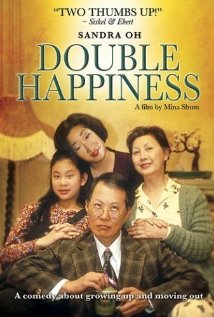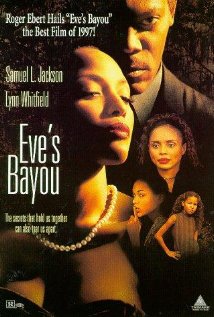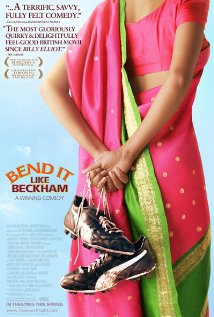Thinking Outside the Blockbuster: Women of Color Make Films for Real Women
By Melissa Robertson
For many American filmgoers it might sound unbelievable that only about 6% of all fiction filmmakers are women. However, to both professional and aspiring women filmmakers this is a well-known and all-too-well-experienced fact. And unfortunately, success rates vary. Sofia Coppola (Lost in Translation, The Virgin Suicides), Mary Harron (American Psycho), and Amy Heckerling (Fast Times at Ridgemont High) are just a few (often-unrecognized) women who have directed some of America’s most beloved classics. To be sure, their kind of success is rare. In 2009, Kathryn Bigelow won the Academy Award for Best Director for The Hurt Locker—80 years after the inception of that award.
Recognition of any woman in cinema is hard to come by. For women of color the outlook is even bleaker. The most recent example is Dee Rees’s Pariah, about a black lesbian teen growing up in Brooklyn. Though the film opened December 28 and already boasts an impressive 96% rating on RottenTomatoes.com, its theatrical release continues to be extremely limited. (For a more extensive look at this film, see Mecca Jamilah Sullivan’s article “Black Queer Gender and Pariah’s ‘Grand Swagger’.”) The only way to gain support, I think, is by raising awareness about these talented women and their films. I have reviewed four films—each having been written and directed by a woman of color.
Written and directed by Mina Shum (Chinese Canadian)
Double Happiness stars Sandra Oh as Jade, a Chinese Canadian who struggles between two identities: the progressive Canadian woman that she is and the traditional Chinese wife that her parents expect her to become. (Find a synopsis here.)
The good: The film is presented in a documentary-esque style with individual character “interviews,” used to highlight key moments in the story—possibly as homage to the many women in documentary filmmaking (where our representation is estimated at 50%). The story is strong, filled with emotional depth, fleshed out characters, and talented actors. The name “Jade” is also symbolic because jade is a stone that has been highly valued in Chinese culture for thousands of years. It represents five virtues: kind-heartedness, righteousness, intelligence, bravery, and purity. The Jade character both embodies these virtues and defies them, which exemplifies her struggle to define her true self.
The bad: The film has a low-budget feel to it, including an ill-fitting soundtrack. There is also one scene that is especially funny, but simultaneously troubling. When Jade is leaving for a date with one of the men chosen by her parents, her father, mother, and uncle all stand by the door and wave exaggeratedly to her in unison. Jade is understandably embarrassed. It’s a highly comedic moment. However, it made me wonder, “are we laughing with Jade because we can all relate to being embarrassed by our families, or are we laughing at these characters because they are fulfilling the well-known stereotype of the bowing, smiling, out-of-touch Asian immigrant?”
Written and directed by Kasi Lemmons (African American)
Eve’s Bayou is a story about a wealthy Black family in early 1960s Louisiana and the dark secrets that lurk within their family unit. (Find a synopsis here.)
The good: Eve’s Bayou is a visually stunning piece of cinematography, replete with rich detail and a beautiful representation of New Orleans style and architecture. This creates an excellent contrast with the dark, ugly nature of the secrets that exist within the Batiste family and the circumstances surrounding the father’s death. In addition, Lemmons includes spooky dream sequences that combine the mystery of voodoo culture with the perils of secrecy—without seeming too preachy or “out there.” And, though this film deals with serious subjects and is very intense at times, Lemmons manages to alternately keep it light with small children’s pranks and wry quips here and there.
Additionally, the story is built around the strength and independence of the female characters. The daughters’ problems are not the typical troubles of the usual “silly” child protagonists. Instead, they have early exposure to infidelity and sexuality, and deal with adult issues of inappropriate lust, love, and hate. Finally, family ties are presented as being highly valued by women, with the women being the primary decision-makers of the households.
The bad: Though the women are shown as strong characters that share impenetrable bonds, the few men are portrayed as mostly one-dimensional characters that are prone to sex addiction, jealousy, and violence. Thus, while this story focuses on the complications of life for women, it seems to overcompensate for male-dominated stories and almost completely leaves men out. The story could have benefited from showing the strength of female bonds within a world where women are also capable of having bonds with respectable men—where women choose to be close with other women because they want to, not because they have no one else.
Written and directed by Darnell Martin (African American/Caucasian American)
I Like It Like That is about a woman who is forced to juggle her own independence with the demands of her unruly children and her hot-tempered husband. (Find a synopsis here.)
The good: This film boasts the widest array of characters, with multiple races and sexual orientations represented. There is a steady focus on interracial relationships, including Lisette’s own parents. Lisette’s pre-op transgender brother is a gem in the story, adding smart commentary and acting as the voice of reason between the dueling spouses. In addition, we see that he is the only truly independent and self-identified character when he stands up to his aggressive and violent father about his gender identity.
The bad: Though this film touts itself as a feminist comedy/drama, it’s hard to get on board with Lisette’s power trip because she never really seems to have much power. Sure, she becomes successful as a record producer’s assistant, but her boss is an uptight corporate stiff whose advances at her can only be described as sexual harassment. Further, we are led to believe that Lisette’s decision to sleep with him is empowering, but that would only be true if she had initiated the sex. Similarly, we see Lisette’s struggle with raising her kids, but her relationship with them doesn’t really progress throughout the film. Additionally, she seems to have little desire for childrearing. Furthermore, the kids are exposed to copious amounts of violence and verbal abuse between Lisette and her estranged husband. It’s difficult to watch, even in the scenarios that are supposed to be comedic.
To view the trailer for I Like It Like That, visit Flixster.
Written and directed by Gurinder Chadha (British Indian)
Bend It Like Beckham is about an English-born girl of Indian descent who is torn between her family’s traditional expectations and her desire to play professional soccer. (Find a synopsis here.)
The good: This film has lots of comedic moments. It tackles the issue of women in sports tastefully by making its characters neither unbelievably feminine nor hyper masculine. Jess’s main focus in the film is her desire to play soccer. Even her budding relationship with her soccer coach does not interfere with this. In fact, Jess is able to retain both her soccer career and her relationship. Both are choices she made for herself, and this is key to her emergence as an independent woman.
The bad: The film is the longest running of all four, and there are some unnecessary scenes of melodramatic conflict where Jess quits and rejoins the team several times that could be cut without negatively affecting the film’s purpose. Additionally, there is a farcical misunderstanding between Jess’s best friend Jules and Jules’s mother where the mother believes that Jules has a lesbian crush on Jess. Though the set-up for the mix-up is well coordinated, it is as tired a joke in women’s sports comedies as “dropping the soap” in prison comedies.
To view movie clips of Bend It Like Beckham, visit Metacafe.
I challenge you to select at least one of these films and simply watch it. Rent it, buy it, or watch it with a friend, but just experience it, because your support helps keep women behind the camera.
____________________________________
 Melissa Robertson is a senior at Purdue University who is studying film & video studies and forensic science. She is an aspiring screenwriter and filmmaker who takes a personal interest in the success of women in the film industry, and was inspired to write this essay in a women’s studies class called “gender and multiculturalism.”
Melissa Robertson is a senior at Purdue University who is studying film & video studies and forensic science. She is an aspiring screenwriter and filmmaker who takes a personal interest in the success of women in the film industry, and was inspired to write this essay in a women’s studies class called “gender and multiculturalism.”








8 Comments